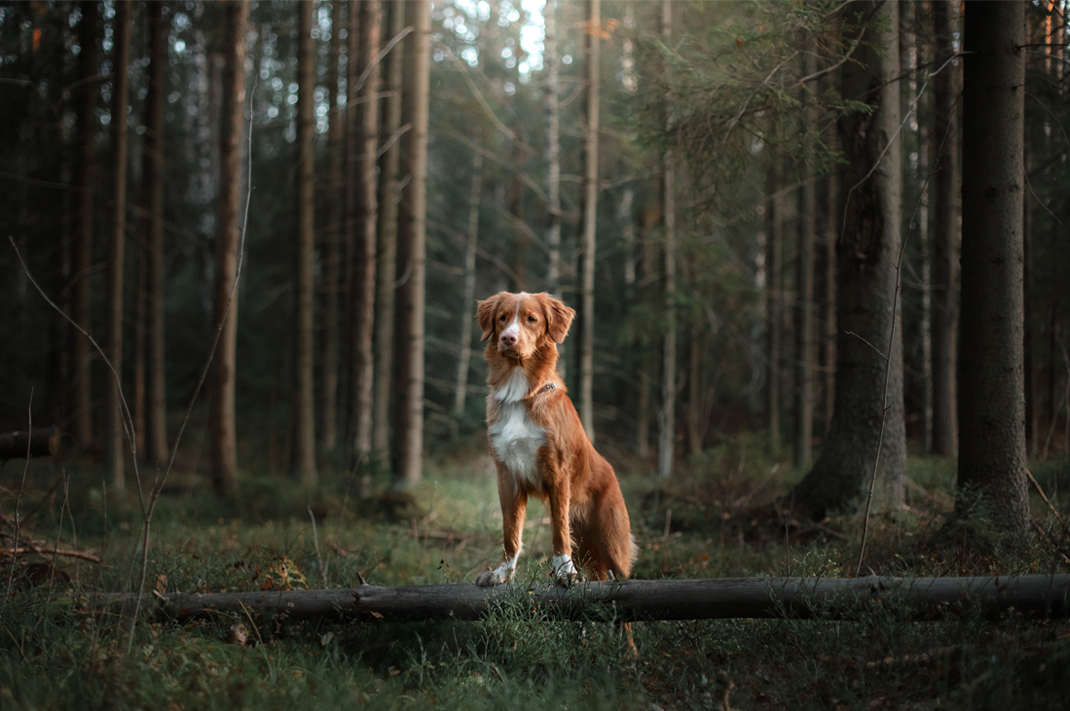Dog Chews for Sensitive Stomachs

The dogs we love are amazing in countless ways. Most of these ways are wonderful, but sometimes, our beloved dogs amaze us with the strange things they eat. From rocks and socks to crayons and toy trucks, dogs will seemingly swallow anything that fits! Because of this, it’s no wonder they occasionally have a sensitive stomach.
Below, we’ll discuss what causes digestive issues for our dogs, how to diagnose a sensitive stomach, and when it’s time to go to the vet. Then, we’ll get to the fun part and choose the best chews for dogs with sensitive stomachs.
What Causes Stomach Upset in Dogs?
There are many potential causes of digestive issues. It can be something simple, like eating food too fast, experiencing an abrupt change in diet, needing more exercise, or eating something strange. It can also be a sign of something more serious like parasites, intestinal blockages, bacterial infection, or ulcers. While there are some scary issues like cancer or kidney problems that cause digestive issues, there’s no need to assume the worst. Some of the most common causes of stomach upset for dogs are allergies, overeating, and stress.
Sometimes, the problem is as simple as the dog food or chews you provide. Rawhide chews and some dry foods can swell up and irritate a dog’s stomach. But other times, there is no specific “reason.” Your best friend may just have a sensitive stomach and need a modified diet to accommodate it.
A sensitive stomach or an allergy is something your dog could be born with or develop at any time. Some breeds, like German Shepherds, Irish Setters, Yorkshire Terriers, and Labrador Retrievers, are particularly prone to stomach upsets. In general, puppies, small dogs, and older dogs may be more likely to develop a sensitive stomach, too.
Whether your dog has a sensitive stomach for ongoing reasons or simply has occasional upsets, you’ll want to know how to recognize it and how to best address it.
Symptoms of Sensitive Stomachs in Dogs
Many of the sensitive stomach symptoms are what you’d expect to see, like diarrhea or vomiting, but others are not so obvious. Here are some of the symptoms of digestive upset in dogs:
- Loss of appetite
- Nausea or vomiting
- Excessive lip-licking
- Excessive, uncontrollable drooling
- Frequent, excessive swallowing
- Retching or dry vomiting
- Soft stools or diarrhea
- Constipation
- Blood in stool
- Lethargy or low energy
- Excessive gas
- Excessive stomach noises
- Red, itchy skin or hair loss
Do you know that playful bow your dog does when he’s greeting a friend and inviting him to play? The one where he stretches his forelegs straight ahead, with his chest to the ground, and his hind legs standing with his tail up? Dogs will also adopt this universal invitation to play to ease strain and discomfort in their stomachs. If your dog continues to assume the playful bow without wanting to play, it may be a sign of an upset stomach.
What to Do for Your Dog’s Stomach Upset
All dogs, just like people, will experience an occasional upset stomach. Anytime your dog is not feeling her best, you have reason to be concerned. Even if the symptoms are mild or infrequent, you’ll want to take steps to ease her discomfort.
As soon as you notice any signs of a sensitive stomach, cut out all table scraps. Secure the trash can, the cat’s litter box, and be sure there is no opportunity for snacking of any kind.
For mild stomach upset, withhold food and treats for 12-24 hours and allow your dog’s digestive system to rest. Don’t even give any dog chews for sensitive stomachs at this time. Continue to provide clean, fresh water and let her body heal.
You might also consider trying a bland diet of boiled rice and chicken that is easy to digest as a temporary measure. If you do want to offer a treat, try ones made with plain yogurt and pumpkin puree (not pumpkin pie filling, just 100% pumpkin) in equal parts. Blend the pumpkin and yogurt, then spoon the mix into an ice cube tray and freeze. The yogurt probiotics will help settle her stomach, while pumpkin will regulate her stools, correcting both hard stools and diarrhea.
However, if the symptoms are severe, or your dog experiences vomiting or diarrhea for several days, it is time to call the vet. Be prepared to answer questions about how long the issue has been going on. Also, consider taking along a fresh stool sample since there’s a good chance it will be needed to diagnose digestive problems. A ziplock bag works well for this.
Your vet may recommend antacids, antibiotics, worming medicine, subcutaneous or intravenous fluids, depending upon the issue. Severe cases may require surgery. You’ll most likely be encouraged to change dog foods and switch to dental chews for dogs with sensitive stomachs.
Choosing Dog Chews for Sensitive Stomachs
While there can be some serious issues involved, any dog can occasionally have stomach upset, and many simply have a sensitive stomach with no underlying health problems. Also, dogs that could once eat anything without consequences may develop a food sensitivity or allergy to their regular food.
A dog’s short digestive tract makes digesting grains like wheat and soy challenging, yet these are commonly used fillers in many dog foods and treats. When choosing the best dog chews for sensitive stomachs, take the same steps you would for your family and read the labels.
When searching for dog chews for sensitive stomachs, you have two categories to consider: those that (probably) won’t be swallowed and those that will. Look into chew toys like large cotton rope bones that enable the stimulation and stress-busting of enjoyable chewing without putting anything into a sensitive stomach. Stay away from rawhide or conventional rope that frays; those threads inevitably get swallowed and are irritating to the digestive system.
For easily digestible treats, the best chews for dogs with sensitive stomachs will have the following qualities:
- High-quality, easily digestible protein from a single animal-based source like chicken, turkey, or lamb
- 100% rawhide-free
- Easily digestible carbohydrates–avoid fillers like wheat, gluten, and soy
- Sources of dietary fiber to support digestive health
- No artificial colors or flavors
- Vitamins and minerals
This list of qualifications for dog chews for sensitive stomachs should clarify that “easily digestible” is not the same as tasteless and bland! You’ll find your dog loves tasty treats made from real ingredients like those you feed the rest of your family.
Why Choose NutriChomps
We make NutriChomps edible dog chews using real ingredients like chicken meat, milk, and peanut butter. We load them up with dietary fiber to support digestive health, and they are vitamin and mineral enriched. We skip the artificial flavors and colors, relying on the real flavors from genuine ingredients dogs love.
We have formulated the best dental chews for dogs with sensitive stomachs to address the health and well-being of your dog overall. While creating a durable, tasty, and nutritious treat that satisfies your dog’s need to chew while breaking down tartar and plaque, we emphasized safety and digestibility. Doing so resulted in the best chews for dogs with sensitive stomachs. Whether your dog has an uneasy stomach or not, NutriChomps will be a big hit!
Although NutriChomps chews are made from quality food ingredients, our treats are intended to complement, not to replace, your dog’s regular dog food. Similarly, our chews play an important role in your dog’s dental care but are not substitutes for regular brushings and good dental hygiene.
Choosing NutriChomps Chews for Sensitive Stomachs
NutriChomps are the safe and tasty choice for dog chews for sensitive stomachs. Our top recommendations include our twists made with real chicken meat. These braided chews, made in chicken, milk, and peanut butter flavors, provide a fun texture for your dog to explore. You can unwind the braids and offer them individually or break them into shorter pieces to vary how you offer them.
The size of the chew you offer matters. Too small, and the chew will likely get swallowed whole, missing the many benefits of chewing. But a chew that’s too large can frustrate a small dog. Ideally, the chew will be a bit larger than the dog’s mouth to provide the best experience. We have produced NutriChomps in a range of sizes to suit all dogs, from weaned puppies and tiny dogs up to the biggest boys and girls on the block, weighing over 90 pounds. Consult our size guide to find the perfect NutriChomps chews for every member of your fur family.
Discover the full line of NutriChomps’ best chews for dogs with sensitive stomachs at Amazon and Chewy, as well as your local retailer.
Dogs with sensitive stomachs can still enjoy nutritious, tasty treats. Get NutriChomps today!



